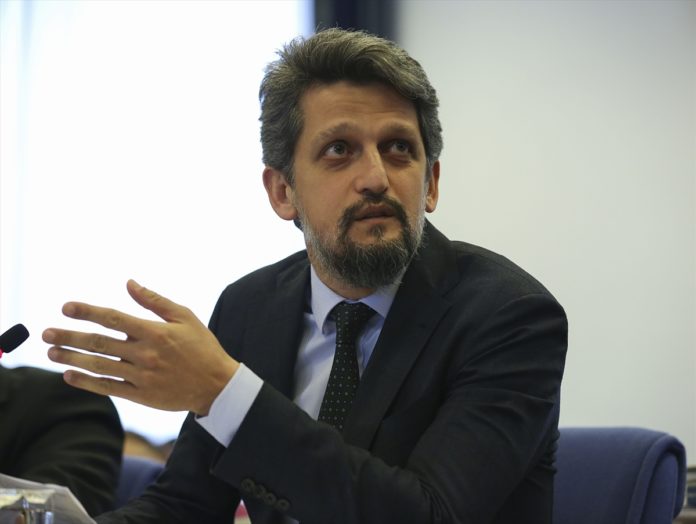By Amberin Zaman
ISTANBUL (Al Monitor) — Turkish prosecutors are seeking to lift the parliamentary immunity of an ethnic Armenian lawmaker in order to prosecute and potentially jail him, marking a further escalation of the government’s assault on free expression.
Prosecutors in Ankara have invoked Article 301, which criminalizes insulting the Turkish nation, and Article 299, which penalizes insulting the Turkish president, against Garo Paylan of the Peoples’ Democratic Party (HDP), the largest pro-Kurdish bloc in the Turkish parliament.
They were said to be acting on a criminal complaint filed in May 2017 by Turkish academic Aygun Attar and approved for further action by the Justice Ministry in December. Attar was reportedly protesting Paylan’s depiction of the mass slaughter of more than a million Ottoman Armenians in 1915 as a genocide in separate comments to the parliament and in an interview with the Armenian-Canadian publication Horizon Weekly, among others. Paylan’s critical remarks concerning Turkish President Recep Tayyip Erdogan’s recent alliance with far-right leader Devlet Bahceli and the ensuing crackdown on the media and civil society were likewise deemed to be insulting to the office of the president.
Nine HDP lawmakers, including the party’s presidential candidate Selahattin Demirtas, are currently in jail facing a cocktail of terror charges together with hundreds of other party officials. But the accusations against Paylan stand out. The government has prosecuted tens of thousands of alleged operatives of the religious cult led by Fethullah Gulen, the Pennsylvania-based Sunni preacher who is accused of masterminding the failed July 2016 coup. Countless others said to be associated with the outlawed Kurdistan Workers Party, including HDP officials, have been rounded up in the thousands on similar terror charges. But prosecutors had largely steered clear of Article 301, which was commonly used in the past against those who dared to call the orgy of bloodletting in 1915 a genocide.
Article 301’s targets include Turkish novelist Orhan Pamuk and ethnic Armenian journalist Hrant Dink, who was gunned down outside the office of his AGOS newspaper in January 2007 by an ultranationalist youth said to be acting under the orders of rogue security officials. His murder proved a turning point, opening up nationwide debate on the genocide at a time when Erdogan’s ruling Justice and Development Party (AKP) was still in reformist gear and ready to sign a now frozen peace deal with neighboring Armenia. On the centennial of the genocide in 2015, Erdogan sent a message to the tiny Armenian community: “We share the Armenians’ pain with sincerity. The doors of our hearts are open to the deceased Ottoman Armenians’ grandchildren.” This year’s message was not quite as magnanimous, with Erdogan warning some 70,000 Armenian-Turks to spurn those “who are trying to ignite hatred and hostility by distorting [our] shared past,” presumably by labeling the 1915 tragedy a genocide.









